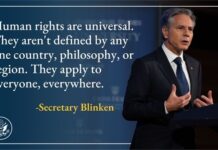The title, earned through the work of a generation of women who heralded the independence of Bangladesh in 1971 with promises of a transformed nation, has not yet accrued the complicated history that makes it an uncomfortable label for women in the West. In London, I hear the word whispered, hedged with caveats and reservations; in Dhaka, it is shouted and sung in public forums as a riposte to the cacophonous voices of religious fundamentalism and ingrained patriarchy.
The conflict between women’s formal rights in the public sphere and their deprivation of rights in the private one is not just an issue of assets, property and child custody; it also has a strong bearing on women’s security within the home. When there is an accepted principle that family life is exempt from the standards of public life, women suffer behind closed doors.
A recent survey of over 12,000 women, conducted by the United Nations Population Fund, in partnership with the Bangladeshi government, revealed that 87 percent of women interviewed had suffered domestic violence, while one-third had experienced marital rape. Since 2010, Bangladesh has had a Domestic Violence Act, but it goes largely unenforced; there have been almost no convictions.
A constitutional amendment alone won’t be a panacea. The basic assumptions that men and women make about their respective places in society need shifting. A new initiative, introduced this week by President Abdul Hamid, aims to do just that. (My mother, Shaheen Anam, herself a feminist activist, has been involved.) Called “Equality Through Dignity,” the campaign will highlight the contribution of women to society in general.
It starts with a publicity push in which famous men — national celebrities, government ministers, members of Parliament and the president himself — hold up placards saying: “I am sorry. Let’s change.”
Apologies are all very well, but the show of contrition would mean more if it were accompanied by the amendment of Bangladesh’s founding document. In the meantime, we feminists will continue to shout proudly from the rooftops — demanding that promised change.
Source: Nytimes









